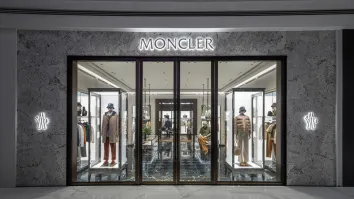
Most Indian residents still prefer to shop online: survey
The urban diaspora was quick to adopt online shopping.
A majority of Indian residents in both city centres and small towns prefer to shop online for either essential or non-essential goods such as clothing, footwear, and cosmetics, according to a report from CBRE.
For gifts, cosmetics, clothing & footwear along with essential items such as groceries and toiletries, 60% to 65% of city centre residents preferred to shop online.
For small-town residents, more than 55% of small-town residents preferred online shopping for gifts, clothing & footwear and electronics, whilst only 31% of them preferred to shop online for essential items.
READ MORE: E-commerce trends brands need to keep an eye on
After the COVID-19 pandemic, the retail sector witnessed a sharper-than-anticipated recovery trajectory, which can be attributed to pent-up demand among consumers who had been forced into isolation for almost two years, the report noted.
“The Indian urban diaspora has been quick to adopt online shopping, especially in gifts, cosmetics, clothing & footwear and electronics segments. A significant portion of shoppers have also started to explore online channels for essential items (grocery & toiletries) and children’s clothing & footwear,” CBRE said.
Millennials have shown a flair for online shopping across clothing & footwear, electronics, cosmetics, gifts and essential items, and more than 70% of late millennials preferred to buy their clothing & footwear and cosmetics online, the report added.
Although the advantages of online shopping such as ease and convenience, price comparisons and better choices in terms of stock became more prominent when consumers were forced to shop online during the COVID-19 pandemic, physical stores remain relevant owing to the layer of experience that they offer.
In line with Asia-Pacific and global trends, more than 65% of consumers across all generations have shown a strong preference for shopping in brick-and-mortar stores for big-ticket purchases such as luxury products and jewellery, irrespective of their location
A significant portion of shoppers in the country, especially those residing in suburbs and small towns also expressed a preference for buying homeware, home decoration and furnishing products from stores.
“Preference for offline shopping across some of these segments in small towns and rural areas can be attributed to the fact that some of these areas may not be serviceable by certain online channels and shoppers may also desire to examine/research some of these products before making a purchase,” the report stated.



















 Advertise
Advertise







